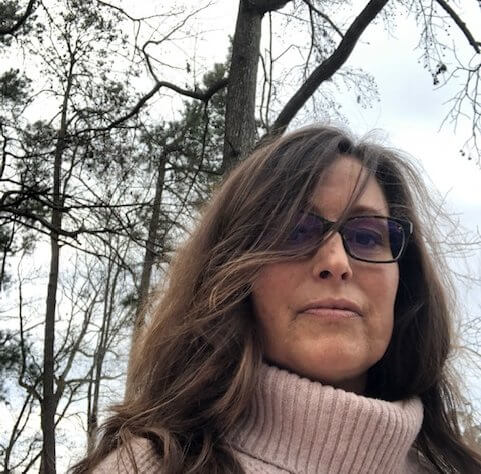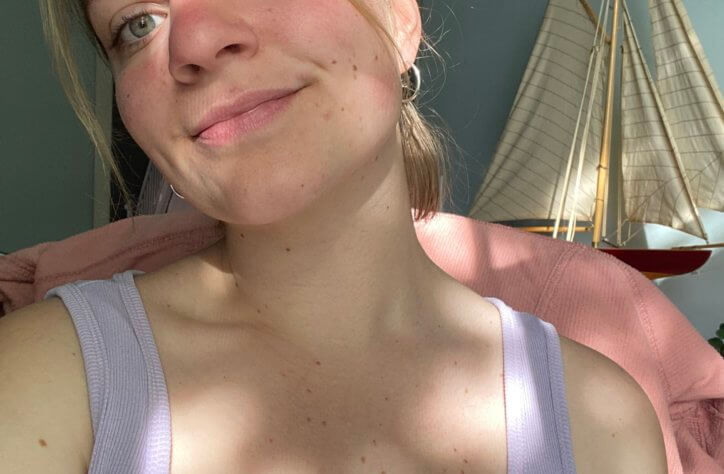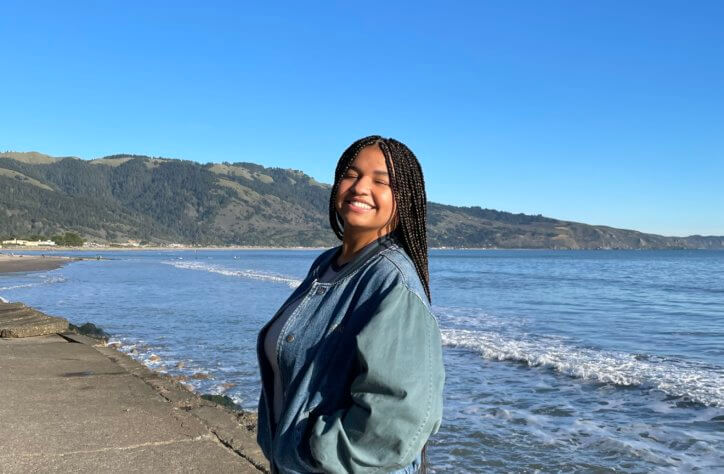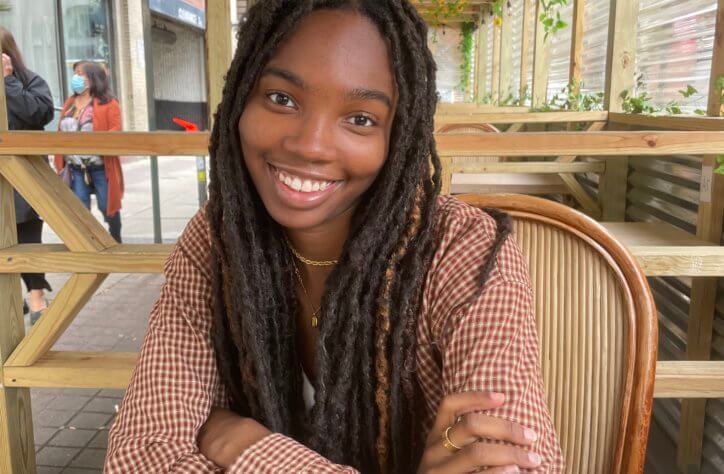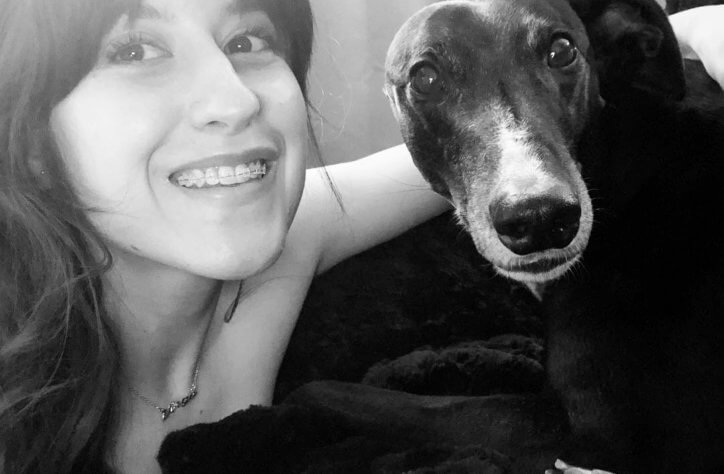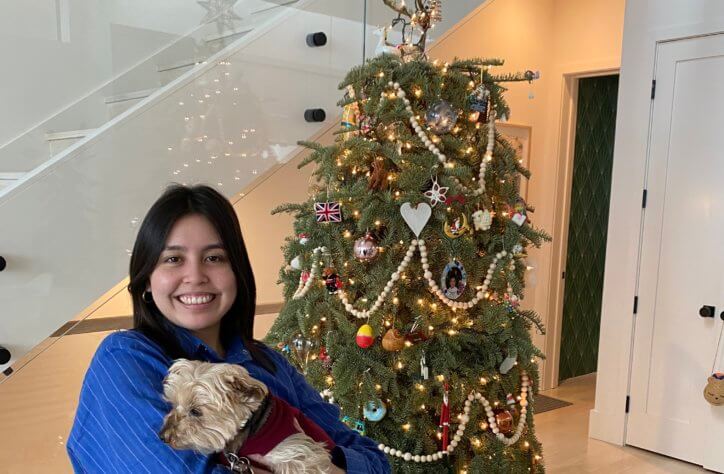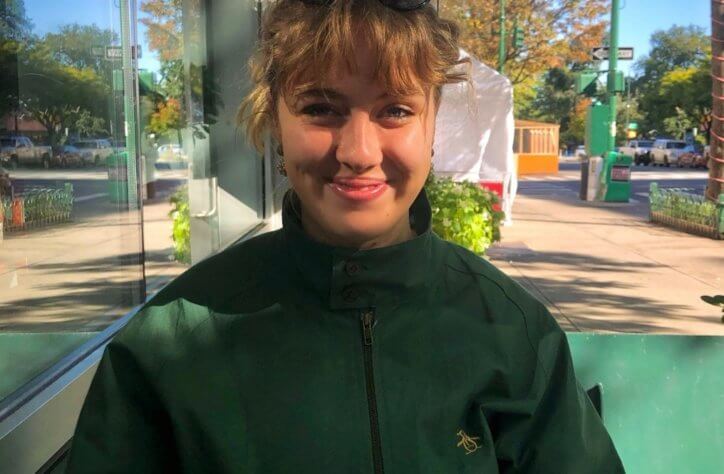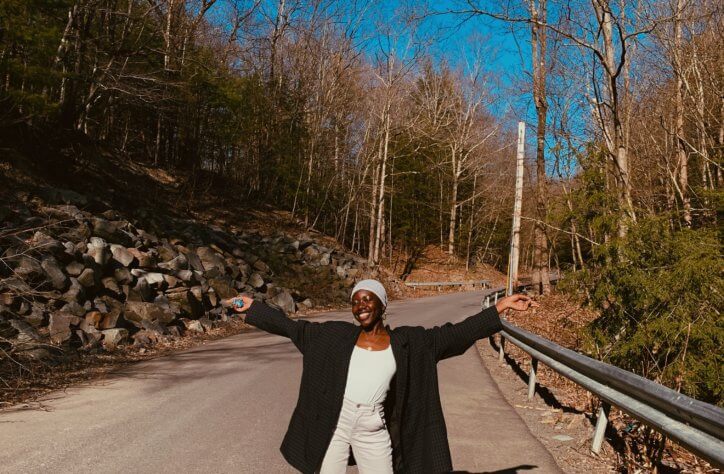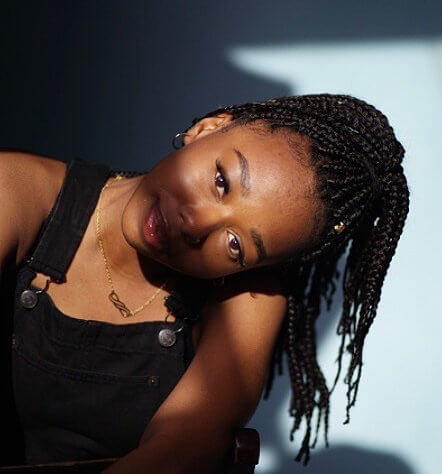One day in January 2017, I was walking down the street when a man walked past and said three words to me: “Cheer up love!” Little did I know at the time that those words would change my life forever, and inspire me to create a photojournalism series spanning five different countries and retelling hundreds of women’s experiences of harassment from all around the world.
No – in that moment, I just felt self-conscious about my appearance, guilty for not looking happy, and angry that a total stranger had just told me how to look and feel, based entirely on the fact that I was a woman. Not only does it take a certain amount of audacity to tell a total stranger to cheer up, but it also disarms you in a way that is totally unexpected and leaves you three paces behind, thinking of a comeback that’s way too late to say. So the man has walked on, forgetting about the whole incident in about three seconds, and you are left mulling over quick-fire responses for the next six hours, because, unfortunately, this kind of throwaway comment can irritate you for the rest of the day.
Now, this is not to say that being told to “smile” or “cheer up” is the worst thing that can ever happen to you, but let’s just say it wasn’t the first time I’d heard that phrase, or been told I would look “so much prettier if I smiled.”
So before we go on, let’s clarify why being told to smile, is not a compliment: it is a command. It is a very gendered statement that is often directed at women, for no other apparent reason than the idea that we should all be smiling, happy and therefore a “pretty” spectacle for the onlooking man. Also, it is merely the tip of the iceberg for all the unwanted comments, catcalls, and advances directed at women, which go unchallenged and are normalised day to day. The danger of this is that is makes allowances for the kind of behaviour that leads to more serious forms of sexual assault.
But like I said, in that moment I wasn’t really thinking about this: I was just extremely fed up. So I went to my friend’s house, and told them what had just happened. From the women in the room, the responses were a rallying chorus of “Omg I get that all the time”, and “Yeah I hate it when that happens!” One of my friends who is a nurse even said, “You wouldn’t believe how many men tell me to smile on the ward.”
The conversation then escalated to discussing all the varying forms of harassment that we experienced in a normal day, i.e.: being followed home, catcalled, approached on public transport, leered at, touched without consent at bars or clubs… the list goes on. However, the most startling thing I noticed about this conversation was not the things we were listing themselves: it was the nonchalant way we were talking about them. As if they were the same as picking up groceries or topping up your Oyster card. It then struck me how normal this kind of experience had become for us, having grown up in London, and being exposed to everyday harassment since about the age of 12. We were so used to brushing these kinds of incidents off that we barely raised an eyebrow at each other’s stories. It was only when my male friends interjected with their shock and disbelief that I realised that maybe this shouldn’t be so normal.
My male friends proceeded to challenge our stories, saying that we couldn’t possibly experience so much harassment, and that the things we were talking about sounded like compliments. They also brought up the fact that they hadn’t seen it, done it or heard about it before, so therefore we were probably exaggerating, and were lucky to be getting some attention. You can imagine how this went down. One of my male friends even said, “I would love it if a girl pinched me on the bum every now and again! That just doesn’t happen!” The irony was completely lost on him.
It was after this conversation that I gained some serious insight into the differences of how we went about our day-to-day lives. Out of all of the (straight) men I spoke to, none of them had ever had to alter their route home after a night out, call a friend to feel more safe, meet a pretend “boyfriend”, share their Uber ride details, or walk home with their keys in between their fingers. All of which are daily rituals a lot of women will be very familiar with.
I was also surprised to find out that in my group of friends, all of whom I thought were pretty “woke”, none of the guys had any idea of what their female friends had been going through since starting secondary school. And most of them were pretty convinced that what we were experiencing was actually complimentary, instead of derogatory, because they had never been subjected to it themselves. It was in this moment that I realised that while the harassment was bad enough, there was also a complete lack of awareness surrounding it.
That was when I decided I wanted to do something tackle it, and began @cheerupluv – a photo series dedicated to retelling women’s stories of sexual harassment.
I started collecting stories from my close friends, and wondered what it would be like to revisit the place they were harassed, and use it as a stage for them to speak about their experience. I photographed my friends at bus stops, on the tube, and in busy streets, and then posted the photos and stories on Instagram. Initially, my aim was to collect as many stories as possible, and to try to raise awareness about street harassment in a positive way. But the project soon became much more than that. As more and more stories were being submitted, women who I didn’t know started to come forward and share their experiences with me, after finding solidarity with other women they had seen on @cheerupluv. I was apprehensive when I began the project that nobody would want to speak so openly about something like street harassment. To my surprise, as soon as I started to ask the question, I was receiving hundreds and hundreds of responses a week.
It became clear that there was more behind why I was doing this series. It wasn’t just about proving a point and challenging the people who had disbelieved my friends and me. It wasn’t even just about raising an issue and creating awareness for street harassment. It was about giving women a platform, a voice, and a chance to reclaim their past experiences.
Since 2017, the series has grown in ways I could have never imagined, expanding to the US, Japan, Sri Lanka and Mexico, and leading to a partnership with the United Nations. It has also given me the opportunity to speak at schools, universities, workplaces, and collaborate with distinguished organisations such as Apple, It’s Nice That and TEDx, to name a few.
The past three years have been a complete rollercoaster, and if you were to tell me six years ago that my job now would include public speaking, I probably would have laughed out loud and then cried at the mere thought of it. It’s funny how things can change.
One of the key things I try to convey through Cheer Up Luv is that a negative experience can be turned into something positive. Above all, I want to create a space dedicated to combating the normalisation of sexual harassment, whilst giving women a platform for their stories to be heard.
If you would like to share an experience, please feel free to reach out and dm me @cheerupluv.
Words by Eliza Hatch
